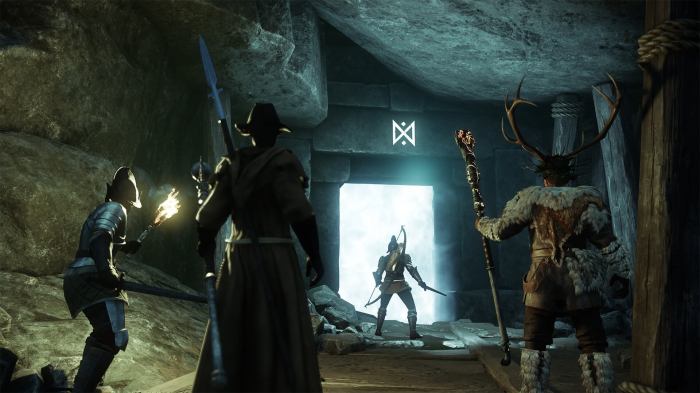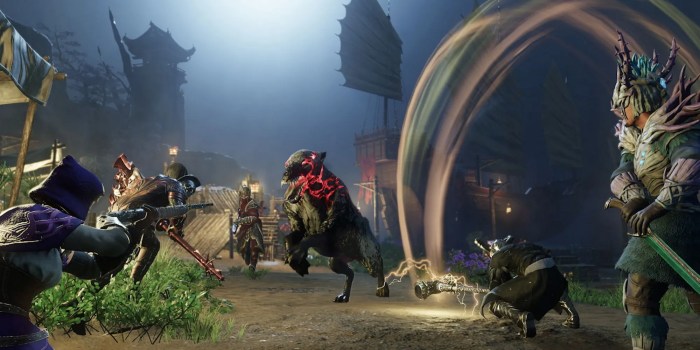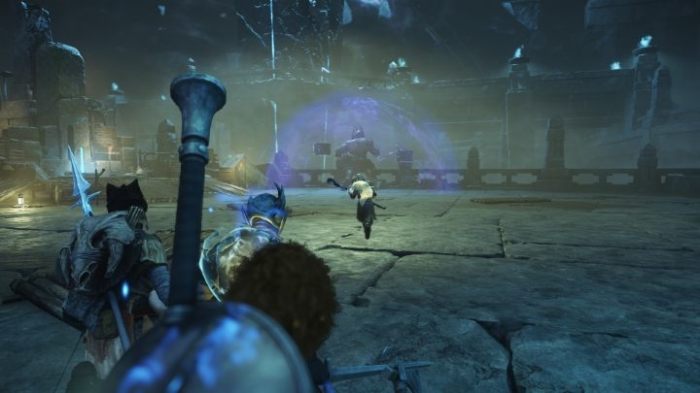With writ of adventure new world at the forefront, this paragraph opens a window to an amazing start and intrigue, inviting readers to embark on a storytelling journey filled with unexpected twists and insights. The exploration of new territories, encounters with indigenous cultures, acquisition of knowledge and resources, impact on environmental and social landscapes, and evolution of exploration techniques are just a few of the captivating chapters that await.
From the historical context and motivations for exploring new territories to the challenges and risks associated with venturing into uncharted regions, this comprehensive guide delves into the fascinating world of exploration. It sheds light on the interactions between explorers and indigenous populations, cultural exchange, misunderstandings, and conflicts that shaped the course of history.
Exploration of New Territories

The exploration of new territories has been a driving force in human history, fueled by a combination of curiosity, economic incentives, and political aspirations. From ancient times, explorers have ventured into uncharted regions, seeking new lands, resources, and knowledge.
The challenges and risks associated with exploring new territories were immense. Navigating vast oceans, traversing treacherous landscapes, and encountering unknown cultures required courage, determination, and technological advancements. Diseases, hostile environments, and conflicts with indigenous populations posed significant threats to explorers and their expeditions.
Famous Expeditions
Throughout history, numerous famous expeditions have contributed to our understanding of the world. Christopher Columbus’s voyage across the Atlantic in 1492 marked a turning point in global exploration, leading to the discovery of the Americas and the subsequent colonization of the New World.
Ferdinand Magellan’s circumnavigation of the globe in the early 16th century provided irrefutable evidence of the Earth’s spherical shape. James Cook’s expeditions in the 18th century explored the Pacific Ocean and expanded European knowledge of the Southern Hemisphere.These expeditions had a profound impact on the development of cartography, navigation, and scientific understanding.
They also facilitated cultural exchange, trade, and the spread of ideas across continents, shaping the course of human history.
Encounters with Indigenous Cultures

As explorers ventured into uncharted territories, they encountered diverse indigenous populations, leading to a complex tapestry of interactions. These encounters ranged from peaceful exchanges to violent clashes, shaping the course of history and leaving a lasting legacy on both sides.
Cultural Exchange
In some instances, explorers and indigenous peoples engaged in mutually beneficial cultural exchanges. Explorers acquired knowledge of local flora, fauna, and medicinal practices, while indigenous populations gained access to European goods and technologies. For example, the Spanish explorer Hernán Cortés allied with the Aztec ruler Moctezuma II, leading to a temporary exchange of knowledge and resources.
Misunderstandings and Conflicts
However, cultural differences often led to misunderstandings and conflicts. Explorers’ assumptions of superiority and the desire for land and resources often clashed with indigenous customs and beliefs. For instance, the English settlers in North America frequently engaged in conflicts with Native American tribes over territory and cultural practices.
Positive Encounters
Despite the challenges, there were also examples of positive encounters. The French explorer Jacques Cartier established friendly relations with the Iroquois Confederacy, facilitating trade and cooperation. Similarly, the Jesuit missionaries in North America made efforts to learn indigenous languages and customs, fostering a degree of understanding and mutual respect.
Negative Encounters
Unfortunately, many encounters were marked by violence and exploitation. European diseases decimated indigenous populations, while conflicts over land and resources led to massacres and displacement. The colonization of the Americas, for instance, resulted in the displacement and subjugation of countless indigenous peoples.
Acquisition of Knowledge and Resources

Exploration significantly expanded the knowledge of geography, flora, and fauna. Explorers mapped uncharted territories, creating detailed descriptions of coastlines, rivers, mountains, and other landmarks. They also encountered countless new plant and animal species, collecting specimens and recording their observations. This wealth of information revolutionized scientific understanding and contributed to the development of new fields such as botany, zoology, and ecology.
Writ of Adventure New World is an exciting game that takes you on a thrilling journey through a vast and mysterious world. If you’re looking for a break from the adventure, check out operation true love ch 80 for a heartwarming love story.
But don’t forget to return to Writ of Adventure New World, where the adventure never ends!
Economic Benefits, Writ of adventure new world
The discovery of valuable resources, such as gold, silver, and spices, was a major driving force behind exploration. These resources were highly sought after in Europe, and their acquisition led to significant economic benefits. The establishment of trade routes between Europe and the Americas, Asia, and Africa facilitated the exchange of goods and ideas, further boosting economic growth.
Scientific Advancements and Technological Innovations
Exploration also stimulated scientific advancements and technological innovations. The need for accurate navigation led to the development of new instruments, such as the compass and the astrolabe. The desire to explore remote and dangerous environments prompted the invention of new ships and equipment.
These innovations not only aided exploration but also had broader applications in science, industry, and everyday life.
Impact on Environmental and Social Landscapes

The arrival of European explorers in the New World had a profound impact on both the environment and the social landscapes of the indigenous peoples. The introduction of new species, the disruption of ecosystems, and the displacement of native populations were among the many consequences of exploration.
Ecological Impact
The arrival of European explorers in the New World had a significant impact on the environment. The introduction of new species, such as horses, cattle, and pigs, had a devastating effect on the native ecosystem. These animals competed with native species for food and resources, and they also introduced new diseases that decimated the indigenous wildlife population.
In addition, the European explorers’ demand for resources such as timber and furs led to the overexploitation of natural resources. This, in turn, led to deforestation, soil erosion, and the loss of biodiversity.
Social and Political Consequences
The arrival of European explorers in the New World also had a profound impact on the social and political landscapes of the indigenous peoples. The Europeans brought with them their own political systems, religious beliefs, and economic practices, which they imposed on the indigenous populations.
This led to the displacement of native populations, the loss of traditional cultures, and the assimilation of indigenous peoples into European society.
Positive and Negative Outcomes
The exploration of the New World had both positive and negative outcomes for the environment and the indigenous peoples. On the one hand, the introduction of new species and technologies led to the development of new industries and the improvement of living standards for some indigenous populations.
On the other hand, the overexploitation of natural resources, the displacement of native populations, and the loss of traditional cultures were all negative consequences of exploration.
Evolution of Exploration Techniques

Exploration techniques have undergone a profound evolution over time, revolutionizing the way humans navigate and discover new territories. From the rudimentary navigational methods of ancient mariners to the cutting-edge technology employed in modern exploration, technological advancements have significantly enhanced the efficiency and safety of expeditions.
Early Navigational Methods
- Celestial Navigation:Using the positions of celestial bodies (sun, moon, and stars) to determine latitude and longitude.
- Dead Reckoning:Estimating position based on previous course and speed, without reference to external landmarks.
- Landmarks and Coastal Exploration:Relying on recognizable landmarks and coastlines for guidance.
Modern Technological Advancements
The advent of modern technology has transformed exploration techniques, enabling explorers to venture into uncharted territories with greater precision, safety, and efficiency.
Satellite Technology
- Global Positioning Systems (GPS):Utilizing satellite signals to determine precise location, altitude, and speed.
- Satellite Imagery:Providing detailed aerial views of terrain, vegetation, and infrastructure, aiding in route planning and hazard identification.
- Remote Sensing:Collecting data on environmental conditions, such as temperature, vegetation cover, and water resources, from satellites.
Unmanned Vehicles
- Drones:Providing aerial surveillance, mapping, and data collection in remote and hazardous areas.
- Autonomous Underwater Vehicles (AUVs):Exploring underwater environments, collecting data on marine life, and mapping ocean floors.
- Rovers:Traversing extraterrestrial landscapes, collecting samples, and conducting scientific experiments.
Impact of Technological Advancements
Technological advancements have revolutionized exploration by:
- Increased Efficiency:GPS and satellite imagery enable explorers to navigate more accurately and plan routes efficiently.
- Enhanced Safety:Unmanned vehicles allow explorers to explore dangerous or inaccessible areas without putting themselves at risk.
- Expanded Scope of Exploration:Satellite technology and autonomous vehicles extend the reach of exploration to remote and previously inaccessible regions.
- Improved Data Collection:Remote sensing and unmanned vehicles provide valuable data on environmental conditions and terrain, facilitating scientific research and conservation efforts.
Common Queries: Writ Of Adventure New World
What were the primary motivations for exploring new territories?
The primary motivations for exploring new territories included economic gain, political power, religious zeal, and scientific curiosity.
What were some of the challenges and risks associated with exploring uncharted regions?
Explorers faced numerous challenges and risks, including extreme weather conditions, treacherous terrain, diseases, and conflicts with indigenous populations.
How did exploration contribute to the acquisition of new knowledge?
Exploration led to the acquisition of new knowledge about geography, flora, fauna, and diverse cultures, expanding our understanding of the world.
What were some of the positive and negative outcomes of exploration on the environment and societies encountered?
Exploration had both positive and negative outcomes, including the introduction of new crops and technologies, as well as the disruption of ecosystems and displacement of indigenous populations.
How have exploration techniques evolved over time?
Exploration techniques have evolved from early navigational methods using stars and compasses to modern technology such as GPS, sonar, and satellite imagery, greatly enhancing efficiency and safety.
